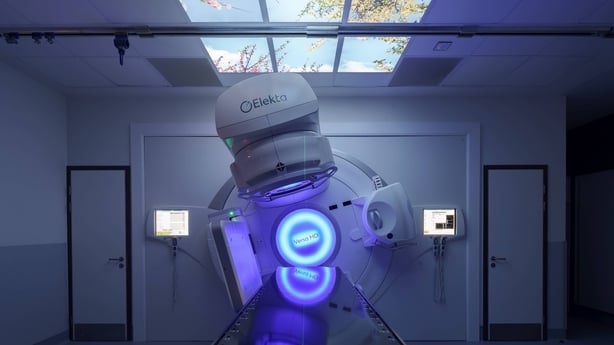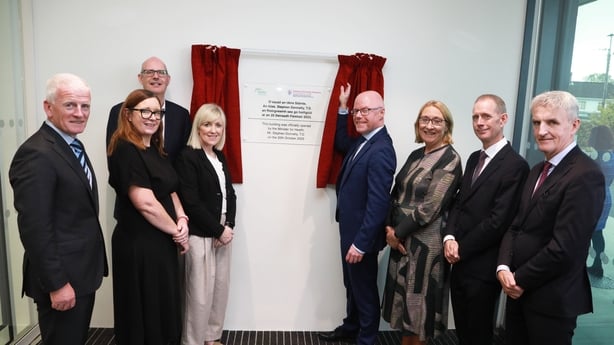A new Radiation Oncology Centre has been officially opened at University Hospital Galway.
The multi-million euro development will serve the west and north-west regions and has already begun treating cancer patients in recent months.
The facility will accommodate emerging treatment methods and use linear imaging technology to ensure greater accuracy in targeting and treating tumours.
Speaking in Galway, Health Minister Stephen Donnelly said: "This centre will help to improve provision of radiotherapy for cancer patients, and to allow the introduction of new treatments and technologies."
The 8,000 square metre building has six radiotherapy treatment vaults using the most advanced linear accelerator technology.

These machines will ensure that patients will no longer have to travel to Dublin for this treatment.
The new centre will also see the installation of the country's first MRI-RT simulator next year.
This is a MRI scanner specifically for the needs of Radiation Oncology patients.
Prof Michael Kerin, Director of the Cancer Managed Clinical Academic Network (MCAN) for the Saolta hospital group said: "This represents a step change in our ability to deliver fit for purpose cancer care in a modern environment. The radiotherapy programme is a key component of cancer therapy and this facility will ensure that the patients from the west of Ireland can receive international class outcomes from this part of their cancer journey - we are very grateful for this important investment in the regional cancer programme."

Hospital Manager, Chris Kane said funding had been secured to increase the number of radiation therapists from 25 to 46.
He said: "While recruitment to these posts and others remains an ongoing challenge, we continuing to prioritise filling all vacant posts."
Dr Cormac Small, Consultant Radiation Oncologist at the hospital said: "The dedicated ambulatory care area will allow for the expansion of our nursing service to patients and play a vital role in allowing patients to stay out of hospital and remain at home for their treatment.
"There is now space for allied health professions again allowing for expansion of physiotherapy, occupational therapy, social work, and speech and language therapy to the patients."







